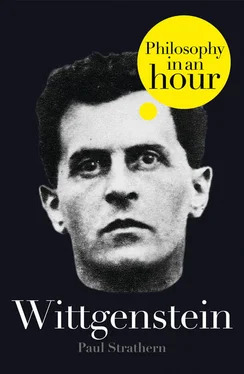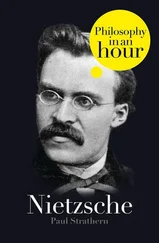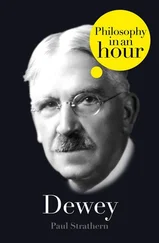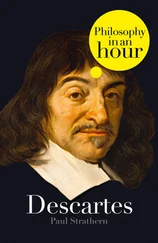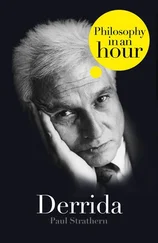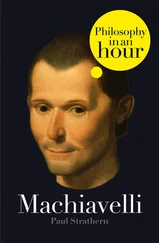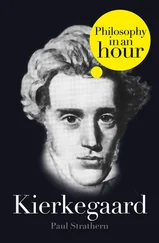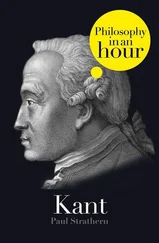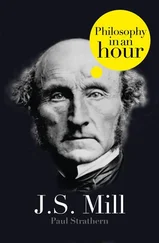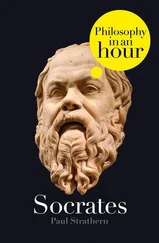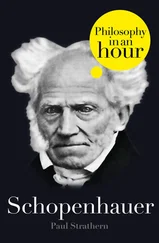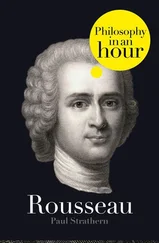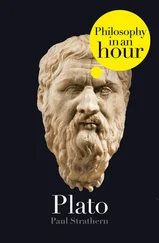Wittgenstein
PHILOSOPHY IN AN HOUR
Paul Strathern
Cover
Title Page Wittgenstein PHILOSOPHY IN AN HOUR Paul Strathern
Introduction Introduction If we accept Wittgenstein’s word for it, he is the last philosopher. In his view, philosophy in the traditional sense – as it had been known in the twenty-five centuries since it was started by the ancient Greeks – was finished. After what he had done to philosophy, it was no longer possible. It is fitting that philosophy should end with its most limited practitioner. Ludwig Wittgenstein was a superb logician, and his solution to the problems of philosophy was to reduce them to logic. All else–metaphysics, aesthetics, ethics, finally even philosophy itself – was excluded. Wittgenstein sought the ‘final solution’ for philosophy, with the aim of putting an end to it once and for all. He had one go at this, but it didn’t work; so he had a second try that did.
Wittgenstein’s Life and Works
Afterword
Further Information
From Wittgenstein’s Writings
Chronology of Significant Philosophical Dates
Chronology of Wittgenstein’s Life
Chronology of Wittgenstein’s Era
Recommended Reading
A Note on the Author
Copyright
About the Publisher
If we accept Wittgenstein’s word for it, he is the last philosopher. In his view, philosophy in the traditional sense – as it had been known in the twenty-five centuries since it was started by the ancient Greeks – was finished. After what he had done to philosophy, it was no longer possible.
It is fitting that philosophy should end with its most limited practitioner. Ludwig Wittgenstein was a superb logician, and his solution to the problems of philosophy was to reduce them to logic. All else–metaphysics, aesthetics, ethics, finally even philosophy itself – was excluded. Wittgenstein sought the ‘final solution’ for philosophy, with the aim of putting an end to it once and for all. He had one go at this, but it didn’t work; so he had a second try that did.
Wittgenstein’s Life and Works
Apart perhaps from Leibniz, Wittgenstein is the only major philosopher to have produced two distinct philosophies. And when one considers that both of these were dedicated to finishing off philosophy, one begins to get a measure of the man’s perverse dedication.
His father had something to do with this. It is appropriate that Wittgenstein grew up just across town from where Sigmund Freud had recently installed the world’s most famous couch. Wittgenstein’s father Karl was a tyrant. By the time young Ludwig arrived on the scene his father was one of the uncrowned industrial kings of Europe (more powerful even than Krupp) and a predominant influence on the Viennese cultural scene (Brahms would play at home after dinner, and in the art world he personally funded the Vienna Sezession). Karl Wittgenstein had a domineering personality, a first-class intellect, a deep understanding of culture, and the self-assurance that he could charm the birds from the trees (on the days when he didn’t feel like blasting them off the branches).
Karl’s influence on his family was catastrophic. Young Ludwig had four older brothers, most of whom appear to have been brilliant, exceptionally highly strung, and homosexual. Three of them were to commit suicide, a possibility that Ludwig clung to like a talisman throughout his life. The other brother who survived became a concert pianist, had his right hand blown off in World War I, and afterward continued with his career, commissioning piano concertos for the left hand, including the celebrated one by Ravel. He was not considered to have been as brilliant as his other brothers, or even the best pianist.
Ludwig Wittgenstein was born April 26, 1889, and brought up in a palace on the exclusive Alleegasse (now called Argentinierstrasse) in Vienna. Although Wittgenstein was predominantly Jewish by blood, his family had become Christians, and he was baptized a Roman Catholic. He was educated by private tutors amidst an atmosphere of extreme cultural intensity (suicidal genius brothers practiced at the grand piano long into the early hours; a sister commissioned her portrait by Klimt and rejected the Goyas from the family collection because ‘their tone was out of place’). At the age of ten, young Ludwig single-handedly designed and constructed out of pieces of wood and wire a model sewing machine. By the time he was fourteen he could whistle entire movements from a number of well-known symphonies. These activities would seem to be the nearest he came to playing in the manner of an ordinary child.
In 1903 Wittgenstein left home for the first time to attend the Realschule in Linz, where he studied mathematics and science. Curiously, Hitler was at this school at the same time. They were both the same age and should have studied in the same class. Wittgenstein considered that he was a mediocre student, but he was nonetheless promoted to the year above his age group; Hitler records how he shone among his doltish classmates, but according to the records he was kept back in the year lower than his age group. So the whistling dolt and the supreme genius never met.
After this Wittgenstein studied mechanical engineering for two years at the Technische Hochschule at Charlottenburg in Berlin; and in 1908 he left to continue his studies in England. For the next three years he did research in aeronautics at Manchester University, and conducted experiments with kites at the Upper Atmosphere Station near Glossop in Derbyshire. At this stage he showed no sign of what was to come. He knew nothing about philosophy, and was considered by his colleagues quite bright though certainly not brilliant. In the typical English manner of the period, Wittgenstein’s colleagues tended to regard him merely as an eccentric German. They were wrong: he was an eccentric Austrian – a rare but altogether more idiosyncratic breed.
Wittgenstein was punctiliously well-mannered yet capable of flying into a storming rage when anything went wrong with his experiments. In his relations with others he conveyed a cosmopolitan Viennese polish, but it soon became apparent to his colleagues that he hadn’t the first idea of how to get along socially with ordinary people (which included anyone he was not likely to encounter among the geniuses, magnates, and government ministers who frequented the Wittgenstein household). He would work fanatically all day without a single break, then lie in a scalding bath all evening contemplating suicide. One Sunday when he and a colleague missed the train to Blackpool, Wittgenstein suggested they hire one for the two of them.
As part of his research, Wittgenstein set about designing a propeller. The problems posed by this led him into mathematical theory, which appears to have triggered in him some unconscious impulse. Within a remarkably short time his intellect focused, assuming all the power of his intense personality. The propeller and its attendant mathematics were soon forgotten as he continued questioning ever more deeply, until he was probing the very foundations of mathematics. It was as if his mind had locked onto the need to discover some utter bedrock of certainty in the world. It is perhaps no accident that around this time his brothers began comitting suicide and his father became ill with cancer.
Who knew about the foundations of mathematics? Wittgenstein was told of the recent pioneering work done by Bertrand Russell, and immediately he began reading Russell’s Principles of Mathematics, the very latest work on the subject. In this, Russell set out to prove that the fundamentals of mathematics were in fact logical, and that all pure mathematics could be derived from a few basic logical principles. But Russell’s attempt foundered on a paradox. Russell attempted to define numbers by using classes. Some classes are members of themselves, and some are not. For example, the class of human beings is not a member of itself because it is not a human being. The class of nonhuman beings, however, is a member of itself. But is the class of ‘all classes which are not members of themselves’ a member of itself? If it is, it is not. Yet if it is not, it is. The entire status of mathematics hung on this seemingly trivial paradox, which according to Russell affected ‘the very foundations of reasoning.’ He ended his book by issuing a challenge to ‘all students of logic’ to solve it. Wittgenstein immediately launched into the fray. He emerged with a radical solution, dismissing the entire concept of classes as an unwarranted assumption.
Читать дальше
